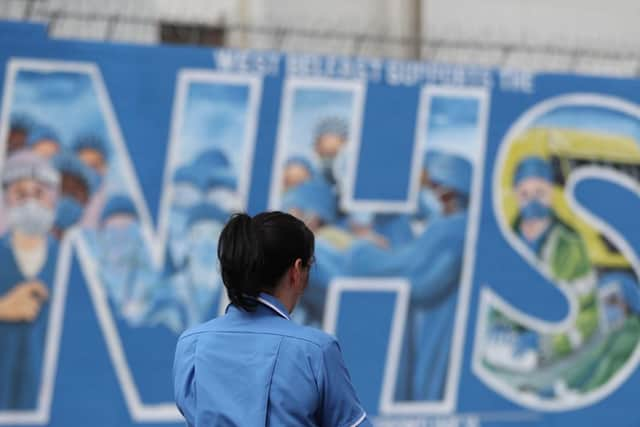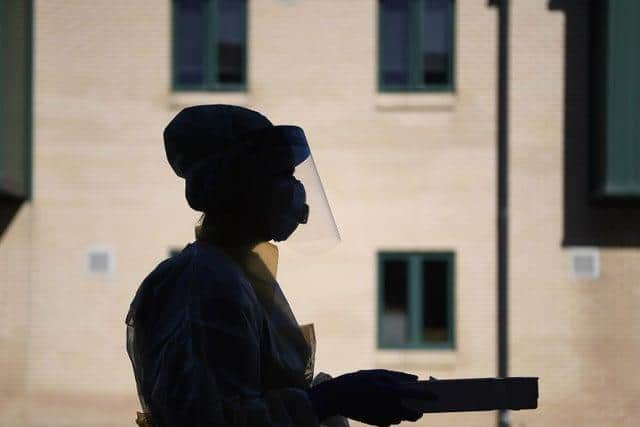Sheffield University scheme to 'future proof' NHS supply chains from national shortages
The researchers say the new platform will help the NHS order essential supplies such as personal protective equipment (PPE) from low-risk suppliers, and will ease future shortages like those experienced in the first wave of the pandemic.
University of Sheffield researchers are working with Vamstar, the world’s first artificial intelligence (AI) powered healthcare marketplace, to create a data-driven platform, that can analyse the NHS and global procurement data - the act of obtaining goods or services.
Advertisement
Hide AdAdvertisement
Hide AdIt will allow NHS buyers to evaluate the credibility, and capability of suppliers to fulfil their order.


The platform will give a real-time risk-rating to each supplier, including information about the goods and services they supply, the quality, and their history of working with the NHS and other EU hospitals.
The project aims to diversify the NHS supply base and reduce the overall risk of the NHS purchasing from companies who may be unable to fulfil an order and of receiving sub-standard goods.
Dr Ziqi Zhang, at the University of Sheffield, said: “To consolidate NHS contracting data will create a platform that we hope can futureproof the NHS supply chain against any further crises like the Covid-19 pandemic; which saw health and social care organisations struggle to procure enough PPE and other important products and services to protect their staff and better serve patients.”
Advertisement
Hide AdAdvertisement
Hide AdThe new project comes as the Government’s Health Secretary Matt Hancock was criticised for rejecting claims that there was a national shortage of PPE during the first wave of the pandemic, despite many health and social care organisations having reported difficulty acquiring sufficient stocks of essential PPE to keep staff safe.


Over-reliance on a few healthcare suppliers and an increase in global demand contributed to the heavy shortages of PPE, essential equipment and pharmaceuticals within the NHS throughout the beginning of the pandemic in the UK.
The new project aims to help the NHS mitigate the risks to its supply chain, by providing critical visibility into its evolving state, better preparing the NHS to identify and predict future potential procurement challenges during post Covid-19 recovery and any future national crises.
Reflecting on the new partnership with the University of Sheffield, Dr Richard Freeman, from Vamstar, said: It will mitigate the risk of future surges in demand for essential products and services by spreading demand over a wider number of suppliers.
Advertisement
Hide AdAdvertisement
Hide Ad"For hospitals and health systems such as the NHS, the pandemic demand and the overall shortages of essential supplies represented a monumental challenge.


“Going forward... This will help us develop a platform to provide up to date, instant access to information about global healthcare suppliers, previously only available through laborious manual research.”
__________
Support The Yorkshire Post and become a subscriber today.
Your subscription will help us to continue to bring quality news to the people of Yorkshire. In return, you'll see fewer ads on site, get free access to our app and receive exclusive members-only offers. Click here to subscribe.
Comment Guidelines
National World encourages reader discussion on our stories. User feedback, insights and back-and-forth exchanges add a rich layer of context to reporting. Please review our Community Guidelines before commenting.